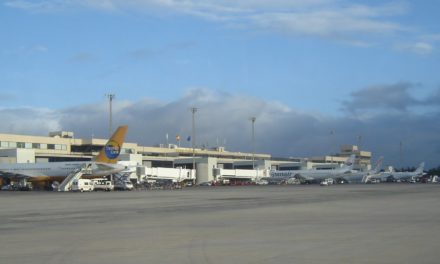AEMET, Spain’s State Meteorological Agency, on Thursday held a press conference to report on their findings over the winter, in regards to climate balance, and the forecast for spring 2021 on the Canary Islands. A slightly warmer winter, according to the meteorologists, that has been pretty “normal”, with average temperatures over the Canary Islands archipelago of 15.3ºC, that is 0.2ºC above the historical average for this season. Data provided by AEMET’s territorial delegate in the Canary Islands, David Suárez, accompanied by Spain’s Government Delegate in the Canary Islands, Anselmo Pestana, suggest that a warm winter is coming to a close, in which we have seen relatively mild temperatures in the Canary Islands, averaging around 15.7ºC in December; 15.2ºC in January; and 14.9ºC on average for February.
There were warmer than average periods during this winter (2 in January and 2 in February) and colder too (1 in January and 2 in February). Between January 8 and 14, following storm Filomena, a marked cold episode took place. With temperatures as low as -6.2°C recorded on the 13th in Izaña Atmospheric Research Centre, on Tenerife, and -14.2°C at the Teide Cable Car station, on the 9th. Another cold spell occurred between February 3 and 7, caused by an Atlantic trough with a cold front passing the archipelago and a later cold discharge. It was this period when the absolute minimums for the month occurred at 90% of the weather stations, some, such as on the 5th in Tijarafe (5.5°C) and Las Mercedes (4.0°C), saw their lowest minimum temperatures in the last 10 years.
Next week will be colder than usual, but for Easter average temperatures are expected to recover
Of course there have also been episodes of winter heat on the islands, like the one between January 27 and February 1, which stands out. During this period, maximums of more than 28°C were recorded in Agulo, Antigua and Teror (reaching 28.7°, on the 28th). Likewise, maximum temperatures in the shade reached record values at several stations, among which the Los Rodeos weather station on Tenerife stands out, on January 29 they measured a winter record maximum of 25.9°C in the shade.
As for the rain, this winter has seen more than is usual, with an average rainfall on the islands of 135mm/m2. December was drier than usual, with half the expected average rainfall, January brought more wet weather than expected, with precipitation equivalent to 155% of the usual average values, with a fairly normal February, equivalent to 92% of expected historical average values. And of course there were various episodes of Calima, though nothing out of the ordinary.
Hoy ha tenido lugar la rueda de prensa en la que se ha presentado el balance climático del invierno 20-21 en Canarias. pic.twitter.com/pGNWLwiFC7
— AEMET_Canarias (@AEMET_Canarias) March 18, 2021













